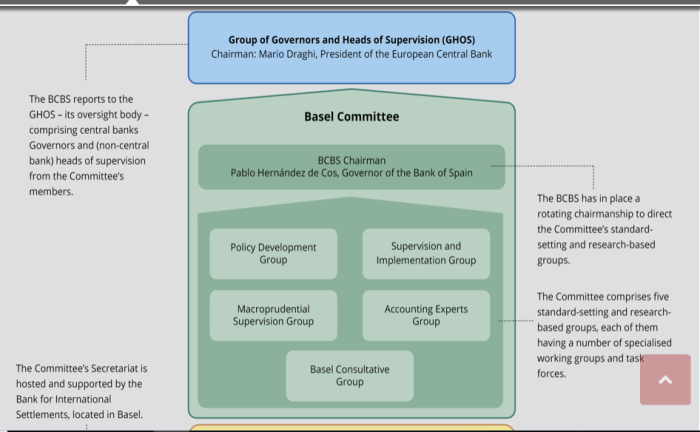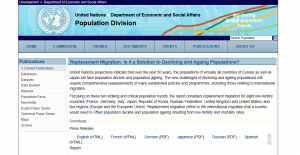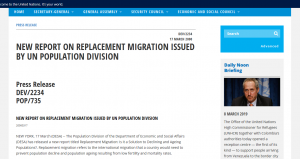

(Bank for International Settlements, or BIS)

(Basel Committee)

(Great video by Stephan Smith)
(Jack Layton and Elizabeth May know full well about the international banking cartel. However they act as controlled opposition and remain silent)
(Great video by NoLongerATheory on 1974 sellout by Trudeau Sr.)

The Bank of Canada Act was passed in 1934. It allowed the Canadian Government to borrow from its own central bank, in a sense, to “borrow from itself”. However, things drastically changed in 1974. Pierre Trudeau changed it so that Canada would now be borrowing from “private banks”, and racking up debt and interest charges in the meantime.
From the Global Research article:
Between 1939 and 1974, the government actually did borrow from its own central bank. That made its debt effectively interest-free, since the government owned the bank and got the benefit of the interest. According to figures supplied by Jack Biddell, a former government accountant, the federal debt remained very low, relatively flat, and quite sustainable during those years. (See his chart below.) The government successfully funded major public projects simply on the credit of the nation, including the production of aircraft during and after World War II, education benefits for returning soldiers, family allowances, old age pensions, the Trans-Canada Highway, the St. Lawrence Seaway project, and universal health care for all Canadians.
This is the main takeaway here: Borrowing from your own central bank effectively makes the loans interest free, since you are borrowing from yourself as opposing to borrowing from someone else.
From the Canadian Dimension article:
The critical point is that between 1939 and 1974 the federal government borrowed extensively from its own central bank. That made its debt effectively interest-free, since the government owned the bank and got the benefit of any interest. As such Canada emerged from World War II and from all the extensive infrastructure and other expenditures with very little debt. But following 1974 came a dramatic change.
Reiterating the point, that Canada was borrowing from itself until 1974.
1. Pierre Trudeau’s Dual Loyalty

In 1974 the Bank for International Settlements (the bank of central bankers) formed the Basel Committee to ostensibly establish global monetary and financial stability. Canada, i.e., the Pierre Trudeau Liberals, joined in the deliberations. The Basel Committee’s solution to the “stagflation” problem of that time was to encourage governments to borrow from private banks, that charged interest, and end the practice of borrowing interest-free from their own publicly owned banks. Their argument was that publicly owned banks inflate the money supply and prices, whereas chartered banks supposedly only recycle pre-existing money. What they purposefully suppressed was that private banks create the money they lend just as public banks do. And as banking specialist Ellen Brown states: “The difference is simply that a publicly-owned bank returns the interest to the government and the community, while a privately-owned bank siphons the interest into its capital account, to be reinvested at further interest, progressively drawing money out of the productive economy.” The effect of such a change would remove a powerful economic tool from the hands of democratic governments and give such control to a cabal of foreign bankers. This was one of Milton Friedman’s radical free-market ideas.
At that time it seems that Prime Minister Pierre Trudeau came under the influence of neoliberalism, promulgated by Frederich Hayek and Milton Friedman. Then, while attending the Basil Committee sessions, he probably came under further influence of fellow Bilderberg attendees and as a result he accepted the partisan flawed logic from the world’s top banks. Apparently on the basis of this, he decided that Canada should dramatically reduce borrowing interest-free money from Canada’s own bank and instead borrow the bulk of its money from chartered banks and pay interest on the loans. It appears that this decision was made without informing Canada’s parliament. This was such a fundamental change of policy that it should not only have been debated in parliament, this should have been put to a national referendum. Strangely, even when this became known, this was apparently never questioned by the opposition parties, especially the NDP, and never revealed in the media. Strange indeed.
John Ryan, writing for Canadian Dimension points out the obvious flaw in the logic of private bank loans. Yes, they create money as well, but their obligations are to shareholders.
Why is it that Canada’s mainstream media has never brought any of these matters to the public’s attention? After the Supreme Court declined to deal with this case, citing specious reasoning that this was more of political issue than a judicial one, the media boycotted the story and therefore hardly anyone in Canada knows of this case. Canada’s top constitutional lawyer Rocco Galati who handled this lawsuit has always gotten major media attention, except for this case, which he considers to have been his most important lawsuit. Prior to this, Galati had been best known for stopping the Supreme Court appointment of Judge Marc Nadon, whose nomination had been put forward by Stephen Harper. Although Galati is unable to identify his sources, he states that he was informed that the government instructed the mainstream media to give this case, and prior lawsuits on this matter, limited coverage. And they complied. The story trickled out through alternative news sources.
In the course of five court hearings dealing with this case, Rocco Galati, as the lead lawyer, maintained that since Canada joined the Bank of International Settlements all their ensuing meetings have been kept secret. Their minutes, discussions and deliberations are secret and not available nor accountable to Canada’s Parliament, notwithstanding that the Bank of Canada policies emanate directly from these meetings. As Galati has stated: “These organizations are essentially private, foreign entities controlling Canada’s banking system and socio-economic policies.” As such, private foreign banks and financial interests, contrary to the Bank of Canada Act, dictate the Bank of Canada and Canada’s monetary and financial policy.
Galati is of course correct, and the COMER case is the subject of the next article. The Governments of both Stephan Harper and Justin Trudeau fought tooth and nail to keep the banking cartel in place in Canada.
One would THINK that the NDP would be all over the case, but surprisingly not. Guess standing up for the little guy has its limits.
As a result of being part of the banking cartel, our “debt” keeps increasing. Truth be told, it will never be paid off, since it is designed not to be.
2. How Much Debt?
Dollars (millions)
Net federal government financial debt
1930 $2,178
1931 $2,262
1932 $2,376
1933 $2,596
1934 $2,730
1935 $2,846
1936 $3,006
1937 $3,084
1938 $3,102
1939 $3,153
1940 $3,271
1941 $3,649
1942 $4,045
1943 $6,183
1944 $8,740
1945 $11,298
1946 $13,421
1947 $13,048
1948 $12,372
1949 $11,776
1950 $11,626
1951 $11,427
1952 $11,163
1953 $11,151
1954 $11,092
1955 $11,229
1956 $11,241
1957 $10,967
1958 $11,015
1959 $11,627
1960 $12,047
1961 $12,394
1962 $13,378
1963 $14,079
1964 $15,262
1965 $15,748
1966 $15,381
1967 $15,866
1968 $16,713
1969 $17,396
1970 $18,095
1971 $18,581
1972 $19,328
1973 $20,123
1974 $21,580
1975 $24,769
1976 $28,573
1977 $32,629
1978 $45,846
1979 $59,040
1980 $72,555
1981 $86,280
1982 $99,600
1983 $128,302
1984 $164,532
1985 $209,891
1986 $245,151
1987 $276,735
1988 $305,438
1989 $333,519
1990 $362,920
1991 $395,075
1992 $428,682
1993 $471,061
1994 $513,219
1995 $550,685
1996 $578,718
1997 $588,402
1998 $581,581
1999 $574,468
2000 $561,733
2001 $545,300
2002 $534,690
2003 $526,492
2004 $523,648
2005 $523,344
2006 $514,099
2007 $508,122
2008 $490,412
In 1930, Canada’s national debt was about $2 billion. In $1974, it was about $20 billion. A decade after changes to the Act, the debt was about $160, or 8 times higher.
Worth noting, that Brian Mulroney, who was PM from 1984 until 1993 added over $300 billion to the national debt.
3. Fighting Back: Committee on Monetary & Economic Reform
Supreme Court of Canada Dismisses Constitutional Bank of Canada Case, Claiming It Is a Political Matter
We believe that the case has ample legal merit, and should have proceeded to trial. It is not uncommon for the Supreme Court to refuse leave on a given issue multiple times, finally to grant leave, hear the appeal and the case then succeeds. The Supreme Court controls its own agenda, both in its timing and on the merits of issues it will or will not hear. (Annually, fewer than 8–10% of all cases filed are granted permission and heard at the Supreme Court of Canada.)
It should be noted that throughout this arduous and expensive legal process, the substance of this lawsuit initiated in the public interest has not been addressed. The matters raised by the lawsuit are summarized in the original news release (pdf) issued on December 19, 2011.)
A 5 1/2 year legal fight to restore the original central banking. Even more frustrating is that the Courts have never really addressed the issues which led to the challenge in the first place.
The Supreme Court says it is a “political matter”, but no politicians in Canada have the willpower to address it, never mind fix it. Even “socialist” and “populist” politicians seem unwilling to take it on.
4. Who Are These People?
About BIS – overview
Our mission is to serve central banks in their pursuit of monetary and financial stability, to foster international cooperation in those areas and to act as a bank for central banks.
Established in 1930, the BIS is owned by 60 central banks, representing countries from around the world that together account for about 95% of world GDP. Its head office is in Basel, Switzerland and it has two representative offices: in Hong Kong SAR and in Mexico City.
We pursue our mission by:
- fostering discussion and facilitating collaboration among central banks
- supporting dialogue with other authorities that are responsible for promoting financial stability
- carrying out research and policy analysis on issues of relevance for monetary and financial stability
- acting as a prime counterparty for central banks in their financial transactions
- serving as an agent or trustee in connection with international financial operations
As part of our work in the area of monetary and financial stability, we regularly publish related analyses and international banking and financial statistics that underpin policymaking, academic research and public debate.
With regard to our banking activities, our customers are central banks and international organisations. We do not accept deposits from, or provide financial services to, private individuals or corporate entities.
Supposedly, the Bank for International Settlements is “owned” by 60 central banks. It then facilitates discussions between those 60 banks. In short, it is a global collusion to fix monetary policies.
Interesting that the “central banks” are supposed to be owned by their respective nations, yet, BIS recommends borrowing from “private” bankers. Almost as if it wasn’t acting in the nations’ self interests.
5. Not in Canada’s Interests
This should be obvious, but borrowing from private banks is not in Canada’s best interests, nor any nations. This is bankrupting our nation, to enrich global bankers.
Restore the 1934 Bank of Canada Act, and let us take back control over our own finances.
Curious, even when national and provincial debts are in the news so much, no one asks the obvious question. Why are we jacking up our debt by borrowing from private banks?
(1) https://www150.statcan.gc.ca/t1/tbl1/en/cv.action?pid=1010004801#timeframe
(2) https://en.wikipedia.org/wiki/Bank_for_International_Settlements
(3) https://www.bis.org
(4) https://www.bis.org/about/member_cb.htm
(5) https://www.bis.org/bcbs/organ_and_gov.htm
(6) https://canadiandimension.com/articles/view/the-bank-of-canada-should-be-reinstated-to-its-original-mandated-purposes
(7) https://www.globalresearch.ca/oh-canada-imposing-austerity-on-the-world-s-most-resource-rich-country/30074
(8) http://www.comer.org/content/SupremeCourtDecision_4May17.htm
(9) http://www.comer.org/content/AmendedClaimStatement26Mar2015.pdf
(10) https://laws-lois.justice.gc.ca/eng/acts/B-2/



